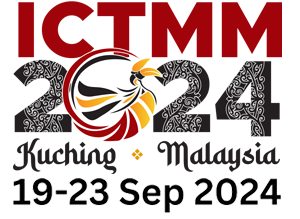21st International Congress for Tropical Medicine and Malaria (ICTMM) – 2024: Day 1
Thursday, 19th September 2024
Published: 20/09/2024
This report is brought to you by the MESA Correspondents Sam Jian Hung, Muhammad Hafizu Sulaiman, Nurul Izza Zakaria, and Syaiful Rizal. Senior editorial support has been facilitated by Indra Vythilingam and Balbir Singh.
THEMES: THEMES: Basic Science | Epidemiology | Health Systems
MESA Correspondents bring you cutting-edge coverage from the ICTMM 2024 Congress “Global Responses and Interdisciplinary Research Towards Eliminating Tropical Diseases”.
Opening Remarks
The Malaysian Society of Parasitology and Tropical Medicine (MSPTM) hosted the 21st International Congress for Tropical Medicine and Malaria (ICTMM) at Borneo Convention Centre Kuching, Malaysia. The conference welcomed over 1200 participants from more than 58 countries. The opening ceremony started with the organizing chair Siti Nursheena Mohd Zain (University of Malaya – UM, Malaysia) highlighting the theme of the conference which was “Global Responses and Interdisciplinary Research Towards Eliminating Tropical Diseases”. Nursheena underscored the importance of interdisciplinary research, where combining expertise, resources, and innovative ideas are crucial in tackling formidable health challenges. The congress was then officiated by The Honourable Datuk Amar Professor Dr Sim Kui Hian, Deputy Premier of Sarawak and Minister for Public Health, Housing and Local Government Sarawak. Prof Sim emphasized on the main objective of the congress being the eradication of tropical diseases which is a vital part in achieving the United Nations Sustainable Development Goals (SDGs) and achieving healthy lives for people of all ages. Lastly, an important outcome of the opening ceremony was the Memorandum of Understanding (MOU) signing for academic and research cooperation between the Asian Alliance of Societies for Tropical Medicine and Parasitology.
Keynote 1 – The M&Ms: Malaria, Man and Monkeys
Balbir Singh (Universiti Malaysia Sarawak, Malaysia) talked about zoonotic malaria in Southeast Asia, starting with the discovery of a large number of human infections in Sarawak, Malaysian Borneo with P. knowlesi, a parasite of macaques. The morphology of P. knowlesi is very similar to P. malariae, and only molecular techniques like PCR could identify the Plasmodium species precisely. This led to the realization that many cases thought to be P. malariae were actually P. knowlesi. Singh went on further to talk about the timeline of human infections with simian malaria parasites and highlighted the growing problem of zoonotic malaria. He added that P. knowlesi is just the tip of the iceberg, and it’s a case of the harder you look, the more cases you find. Besides, recent studies were showing human infections with other simian Plasmodium species such as P. cynomolgi, P. inui, P. coatneyi, P. fieldi and P. simiovale. Reasons for the increase in zoonotic malaria included increased awareness, the use of molecular detection methods, changes in land use, deforestation leading to changes in vector species, increased vector population, changes in vector bionomics, adaptation of parasites, and human-to-human transmission. He highlighted the challenge of controlling zoonotic malaria, noting that outdoor-feeding vectors pose the greatest risk to those engaged in forest activities. Singh emphasized that bed nets and indoor residual spraying are largely ineffective against zoonotic malaria, and our focus should be directed at finding novel vector control methods and at methods targeting the huge reservoir of monkeys infected with malaria parasites.
Published: 20/09/2024
This report is brought to you by the MESA Correspondents Sam Jian Hung, Muhammad Hafizu Sulaiman, Nurul Izza Zakaria, and Syaiful Rizal. Senior editorial support has been facilitated by Indra Vythilingam and Balbir Singh.
THEMES: Basic Science | Epidemiology | Health Systems



